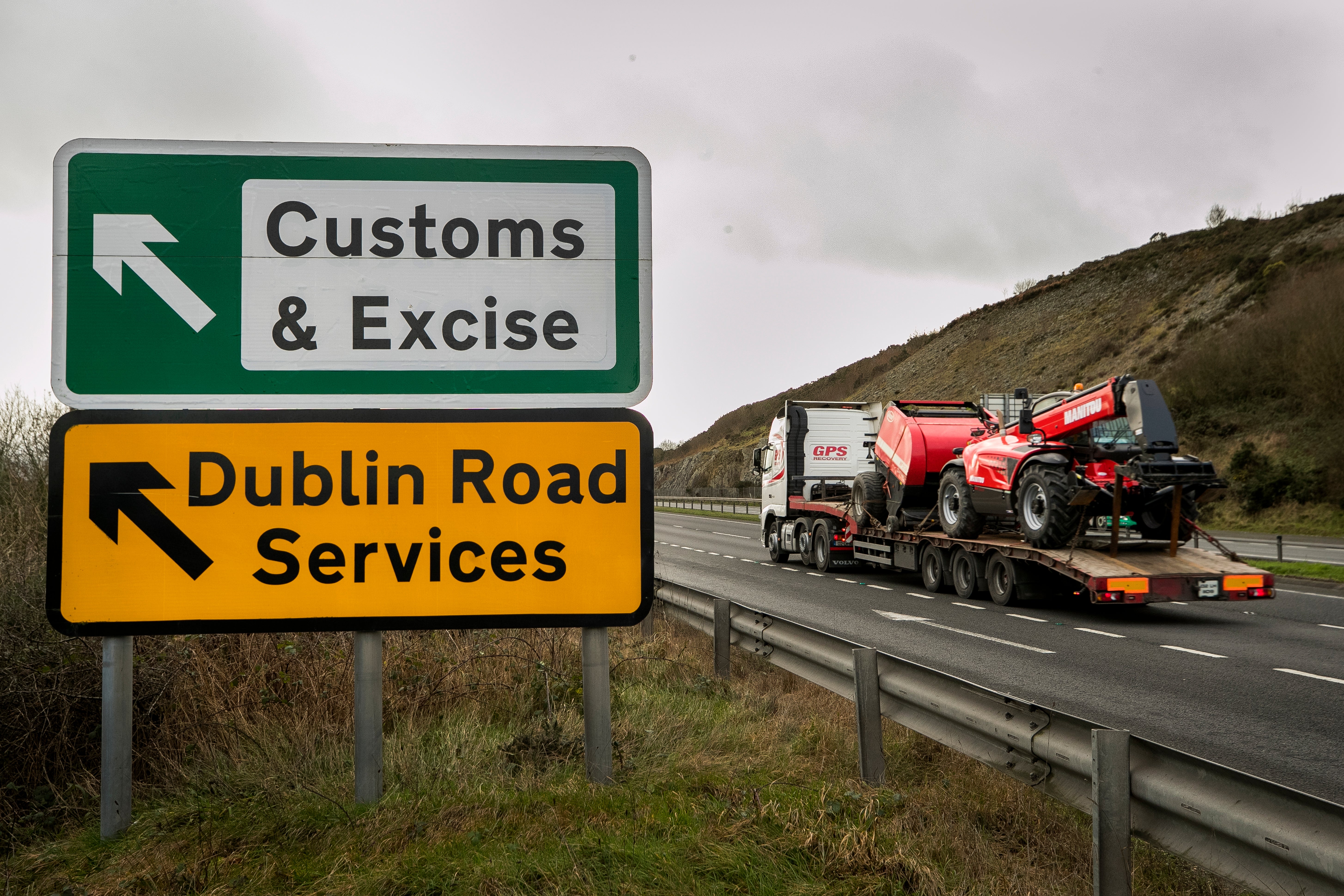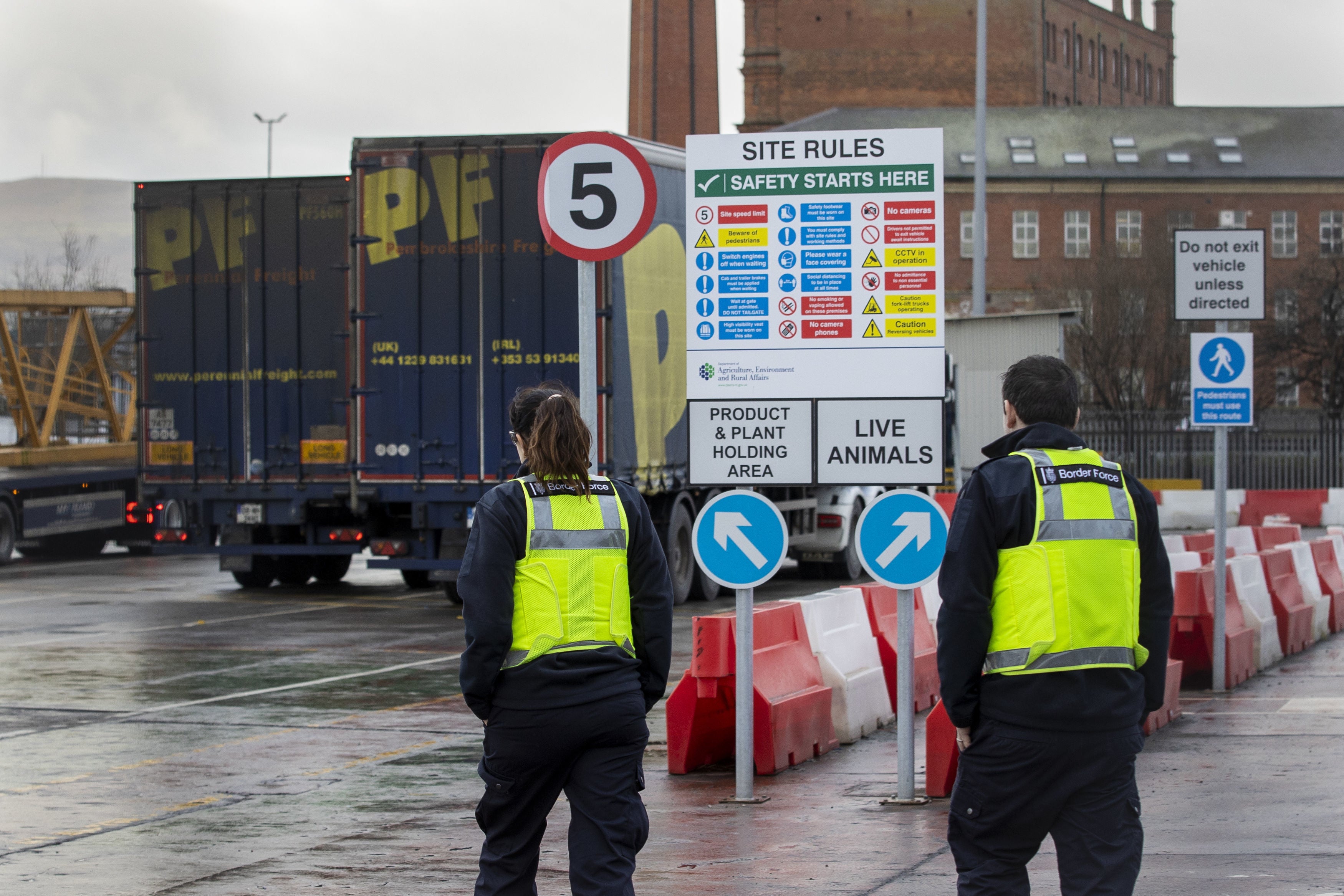
The EU has announced a series of steps in response to the UK’s move to scrap parts of Brexit’s Northern Ireland Protocol.
Here are details of the European Commission measures:
– Resumption of stalled legal action
The EU launched proceedings against the UK last year after the Government moved to unilaterally extend protocol grace periods, thus delaying the full implementation of the trading arrangements.
Resuming the proceedings, the EU is issuing the UK with a “reasoned opinion” and has given it two months to respond.
If the UK does not respond to the bloc’s satisfaction, it will refer the matter to European Court of Justice.
If the court ultimately found against the UK, any sanction would come in the form of a fine.

– Fresh legal challenges
The EU has launched two new infringement proceedings against the UK.
These relate to alleged failures around Sanitary and Phytosanitary (SPS) checks on agri-food produce entering NI from GB and sharing data on trade movements.
The EU is issuing formal notices of action in respect of the two new infringement proceedings.
The bloc claims the SPS checks are not being carried out properly, with insufficient staff and infrastructure in place at the border control posts at the ports in Northern Ireland.
It says the UK is also not currently sharing the trade statistics data required under the protocol.
Again, the UK would face fines if it was found to have breached the rules.
The new legal proceedings do not relate to the content of the Government’s controversial Bill to empower ministers to disapply parts of the protocol.
Any potential proceedings over the Bill would only happen when it was enacted, the EU has said.
More detail on autumn 2021 proposals
In October 2021, the EU outlined a series of proposals to address practical difficulties with the operation of the protocol.
The EU did not announce any further proposals on Wednesday, rather provided more information on how its October measures would work in practice in respect of two key areas, customs processes and SPS checks on agri-food goods.
The bloc claims its measures on customs and SPS rules would effectively create an “express lane” to help facilitate the movements of GB goods whose end destination is Northern Ireland.

Here is what the EU proposed in October:
– Agri-food goods
The EU proposed an 80% reduction in the number of SPS checks on agri-food goods originally required under a fully implemented protocol.
A requirement to submit documentary information online ahead of shipping the goods would remain, but the EU is proposing to significantly reduce identity checks on lorries arriving at ports and the more intensive physical inspections of their contents.
The EU would also axe a requirement for multiple vet-approved health certificates for multi-product consignments bound for use in NI, with one all-encompassing certificate instead sufficing.
The Commission also proposed relaxing laws that would have seen some “high risk” GB produce, such as chilled meats, being banned from export into Northern Ireland.
In return for the concessions on agri-food rules, the EU asked for added safeguards to ensure products remain within Northern Ireland and do not end up in the Irish Republic.
Those include labelling, so certain items are clearly identified as being for sale in UK/NI only.
The bloc says the arrangement would only work if the UK follows through with unfulfilled commitments to build new border control posts in Northern Ireland and give the EU real-time access to trade-flow data.
– Customs
The EU proposed halving on the volume of customs paperwork needed on goods moving between GB and NI.
This would be achieved by expanding the number of businesses and products covered by trusted trader arrangements and a concept that differentiates between goods destined for Northern Ireland and those “at risk” of onward transportation into the Irish Republic, or elsewhere in the EU.
Those products deemed “not at risk” would not be subject to customs duties.
Businesses dealing in NI-destined products will also only need to submit basic customs information, such as a copy of an invoice, rather than comprehensive EU customs code data sets that would otherwise have been required.







